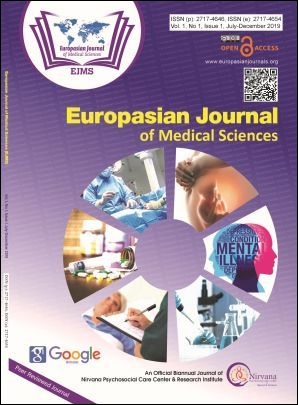Factors Associated with Self-Esteem among Undergraduate Students of Pokhara Metropolitan, Nepal: A Cross-sectional Study
Keywords:
Anxiety, Depression, Factors Associated, Mental health, UndergraduateAbstract
Background: Self-esteem is an overall subjective evaluation of one’s worth or value which encompasses the positive or negative orientation or beliefs towards oneself. Self-esteem has established itself as an important psychological factor contributing to health and quality of life. Thus, this study aimed at understanding the factors influencing the level of self-esteem among the undergraduate students and its correlation with depression, anxiety and stress symptoms experienced by the students.
Methods: A cross-sectional study was conducted among 618 randomly sampled undergraduates from different academic institutions of Pokhara Metropolitan. We used Rosenberg self-esteem scale to assess the level of self-esteem and DASS-21 to assess the level of depression, anxiety, and stress. The collected data was analyzed using SPSS statistical software. The chi-squire test, binary logistic regression and Pearson correlation analysis were performed to establish the relationship between variables at the level of significance, p<0.05.
Results: More than three-forth (75.7%) of the students were found to have a normal level of self-esteem while around one-fifth (21.4%) of the students had low self-esteem. There was no statistical relationship established between students’ academic discipline and their self-esteem. However, students’ academic performance, family history of any psychological distress and their perceived level of social support were the major influencing factors associated with their self-esteem at p<0.001. Based on Pearson correlation analysis, self-esteem was negatively correlated with depression, anxiety and stress at p<0.01.
Conclusion: The students’ level of perceived social support, family history of psychological disorder and academic performance are statistically associated with student’s level of self-esteem. Furthermore, there existed a negative correlation between self-esteem and depression, anxiety and stress experienced by the students. Thus, strategies aimed to increase students’ level of perceived social support and self-esteem can reduce their risks of acquiring any mental health problems in near future.
Downloads
Downloads
Published
How to Cite
Issue
Section
License
The author(s) retain the ownership of the copyrights for their work published in EJMS without any restrictions. Upon submission, the author(s) grants EJMS a license to publish, including to display, store, copy, and reuse the published content.
License to Publish
By submitting a manuscript to EJMS, the author(s) grant the journal a non-exclusive license to:
- Publish and distribute the content in all formats, media, and platforms (both existing and future), while identifying EJMS as the original publisher.
- Reproduce, display, and store the content in both print and online formats, including institutional and digital repositories.
- Translate, adapt, and summarize the work, including reprints, extracts, and abstracts.
- Develop derivative works based on the original content.
- Include the work in electronic databases and provide links to third-party materials.
Creative Commons Licensing
In addition to EJMS’s publishing rights, authors grant third parties the right to use, share, and distribute their work under the Creative Commons Attribution 4.0 (CC BY 4.0) International License. This allows unrestricted use of the content, provided proper attribution is given to the original author(s) and the journal.

